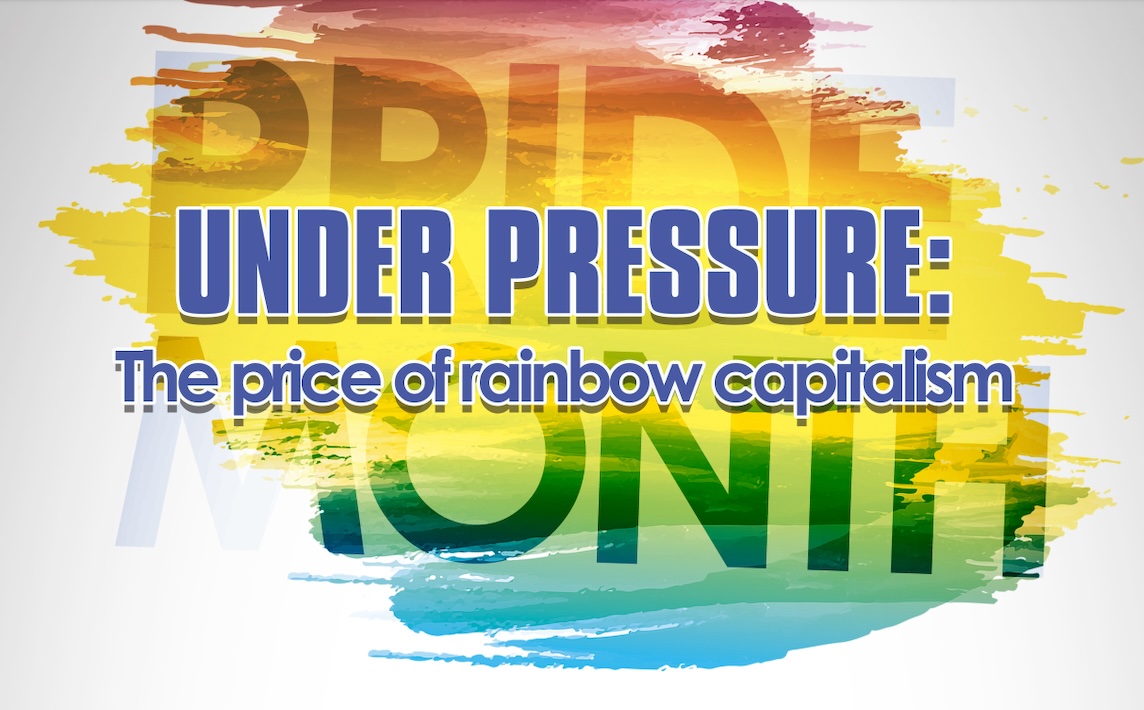Every June, it happens like clockwork. Your favorite websites, brands, and tube sites suddenly burst into a kaleidoscope of color. Rainbow logos are everywhere, special “Pride collections” drop, and celebratory marketing campaigns fill your feed. But as the glitter settles, many in the adult industry are asking a tough question: Is this “rainbow capitalism” a genuine sign of progress, or is it just a lucrative trend that leaves LGBTQ+ creators behind once July 1st hits?
The conversation is getting louder, moving from quiet DMs to public callouts. Creators who are the face of these campaigns are starting to pull back the curtain on what it’s really like to be the “flavor of the month.”
The June Boom and the July Ghosting
For many queer performers, Pride Month feels like a double-edged sword. On one hand, it brings visibility and, often, a welcome paycheck. On the other, it can feel incredibly hollow.
“It’s a frenzy,” one bisexual creator shared on social media. “Companies that ignore you all year suddenly need you for a ‘diverse’ Pride scene. They want your identity, but only the marketable, sanitized version of it.”
This sentiment echoes across the industry. The core of the frustration isn’t the celebration itself, but the temporary nature of it. Many point out the hypocrisy of platforms that plaster rainbows across their homepage while their algorithms simultaneously flag or demonetize LGBTQ+ content for being “too niche” or violating vague community guidelines that seem to disproportionately affect non-heteronormative content.
“You can’t celebrate us with one hand and censor us with the other,” prominent trans performer and director Casey Kisses has emphasized in multiple interviews with industry outlets like XBIZ. She advocates for treating queer creators as professionals year-round, not just as a marketing tool for a single month.
Why It Matters Now More Than Ever
This isn’t just about hurt feelings; it’s about livelihood and authentic representation. The rise of creator-owned platforms like OnlyFans has given performers more control, but they still rely on larger tube sites and social media for promotion—the very places where “rainbow washing” is most rampant.
Fans are catching on, too. A quick search on Reddit or X (formerly Twitter) reveals countless threads from viewers questioning the authenticity of corporate Pride efforts. They’re demanding more than just a rainbow flag; they want to see companies making meaningful contributions.
This includes:
- Year-Round Featuring: Promoting LGBTQ+ creators and content outside of June.
- Fair Compensation: Paying queer talent rates that are competitive with their straight counterparts.
- Charitable Donations: Giving a portion of Pride-related profits to actual LGBTQ+ charities.
- Policy Reform: Reviewing and changing internal policies that unfairly penalize queer content.
Shifting from Performative to Purposeful
It’s not all doom and gloom. Some smaller, often queer-owned, studios are leading the way by building their entire brand around ethical and authentic representation. Companies like Lustery and CockyBoys have earned praise for consistently centering diverse queer experiences, both in front of and behind the camera.
These outfits prove that it’s possible to be both profitable and principled. Their success is a testament to a growing audience that craves stories that reflect the genuine, messy, and beautiful reality of queer life—not just a sterilized, corporate-approved version.
As another Pride month unfolds, the message from creators is crystal clear. They aren’t just decorations for a corporate parade; they are artists, entrepreneurs, and the backbone of the very community these companies claim to celebrate.
As one performer powerfully put it in a recent podcast, “Don’t just wave our flag. Stand with us when it’s not easy. Hire us, pay us, and protect us all year long. That’s real pride.”
* Photo from storerotica.com









